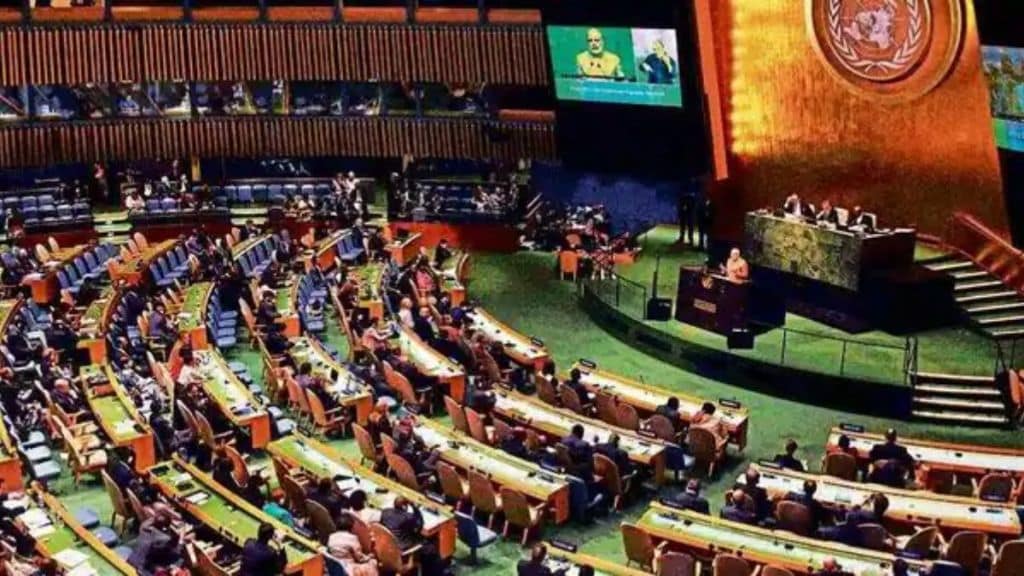Latin American heads of state gathered at the 78th Session of the United Nations General Assembly, using their voices to advocate for the rights of Palestinians and to emphasize the urgent need for the establishment of a free Palestinian state.
Held over a span of eight days from September 19th to 26th, this UN meeting brought together leaders from various Latin American countries who joined forces in calling upon the United Nations to condemn the persecution that Palestinians have been enduring.
One of the notable voices at the assembly was that of Chile’s President, Gabriel Boric. Notably one of the youngest world leaders, Boric sounded the alarm regarding the injustices perpetuated by the Israeli occupation against the Palestinian people. He implored the global community not to remain passive observers when it comes to the illegal occupation of Palestine and the Palestinians’ ongoing struggle for statehood. President Boric stressed the importance of acknowledging their rights under international law and urged member states to support the creation of an independent Palestinian state. Furthermore, he called for the defense of human rights irrespective of political considerations and urged the world to stand up for justice everywhere.
President Gabriel Boric was not the only Latin American leader to address the Palestinian issue at the UN assembly. Brazil’s President Luiz Inacio Lula da Silva also weighed in, highlighting the indispensability of peace for global sustainability and prosperity. He expressed his deep concern regarding the persistence of unresolved conflicts and the challenges faced by the Palestinian people in their quest for statehood.
During the sideline meetings at the UN, President of the Palestinian Authority, Mahmoud Abbas, met with President Lula, who reiterated Brazil’s unwavering support for the Palestinian people and expressed their commitment to strengthening bilateral relations. President Abbas took this opportunity to extend an invitation to Lula to visit Palestine in the near future, underscoring the importance of solidarity between nations.
In his address at the UN, Colombia’s President Gustavo Petro drew attention to the stark contrast in international responses, particularly in comparison to the situation in Ukraine. He proposed a bold initiative for the United Nations to promptly convene two peace conferences—one dedicated to addressing the conflict in Ukraine and the other focused on the Israeli-Palestinian situation. President Petro argued that this would not only pave the way for peace in these specific regions but also serve as a resounding rejection of political hypocrisy on the global stage.
President Petro went on to express his regret over the countless lives lost in conflicts, stating that humanity’s energies should be directed toward solving crises and ensuring a sustainable future. To realize the United Nations’ Sustainable Development Goals, he emphasized the imperative of ending all wars and underscored that true social justice must replace the current global injustices.
Luis Alberto Arce Catacora, President of Bolivia, joined his fellow Latin American leaders in urging the international community to take decisive action to end Israel’s occupation of Palestine. He called for the recognition of the Palestinian people’s right to self-determination and the establishment of a free, independent, and sovereign Palestinian state, with its borders based on the pre-1967 boundaries and East Jerusalem as its capital. President Catacora reiterated the regional commitment to proclaim Latin America and the Caribbean as a Zone of Peace, a stance solidified within the framework of the Community of Latin American and Caribbean States (CELAC).
Meanwhile, Cuba’s President Miguel Díaz-Canel Bermúdez reaffirmed his country’s steadfast support and solidarity with the Palestinian people and their just cause. He unequivocally condemned the arbitrary and unilateral measures imposed on Palestinians, reiterating Cuba’s commitment to stand with them in their struggle for justice.
The collective voices of the leaders echoed a call for justice, peace, and the recognition of the Palestinian people’s right to self-determination. This united front underscored the importance of international solidarity in addressing long standing conflicts and promoting a more just and peaceful world.


